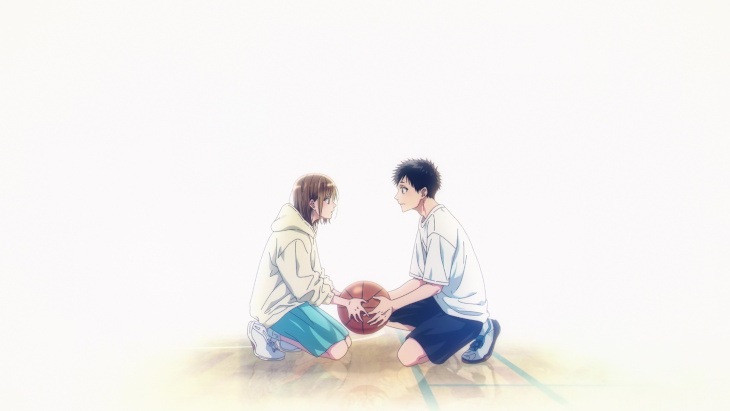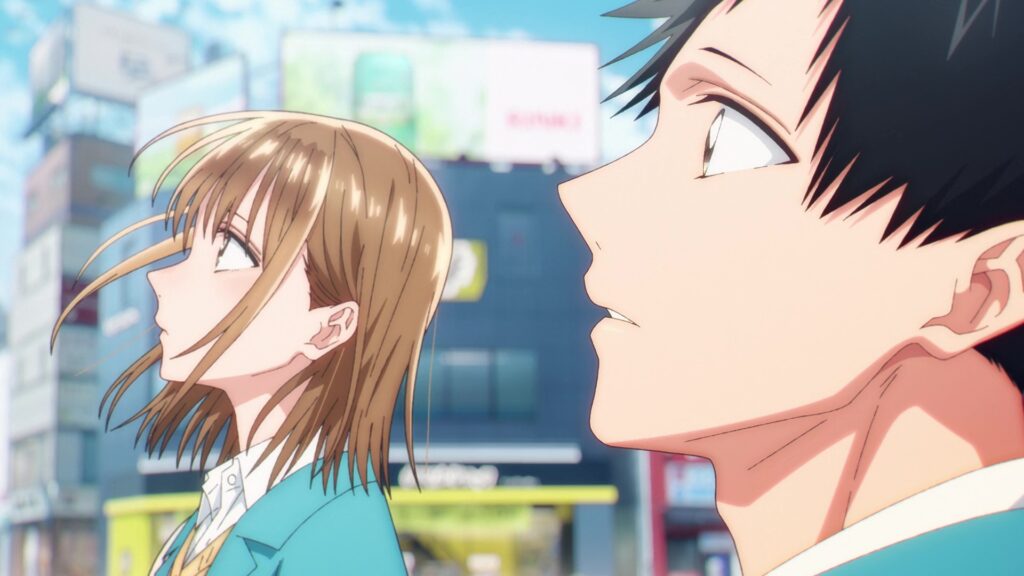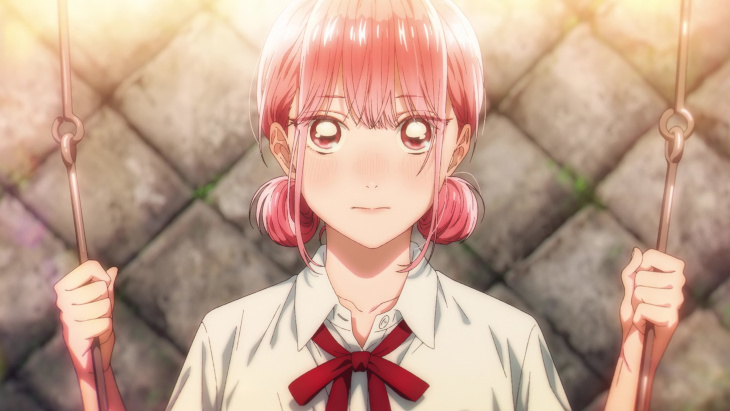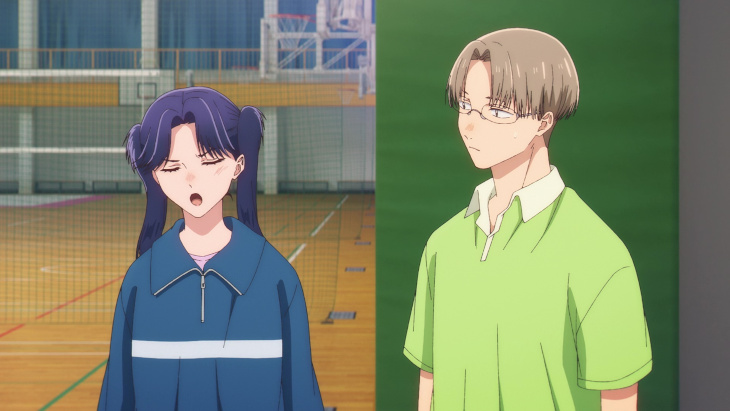
“I’ve never told anyone this… I love you.“
Blue Box was easily one of my favorite shows of the fall season. While it may have narrowly lost the “Fall Best of Season” crown to Dandadan, it rightfully claimed it this season. Yes, this season, not even the poison gremlin could outmatch the blend of sports intensity and romantic melodrama that Blue Box elevates to a rare form.
I’d say this almost feels tailor made for me, but I’m still perplexed by my affinity for sports anime. Maybe this is the ultimate form of escapism? After all, competitive sports and romance are two things that I’m entirely lacking in proficiency with. Either way, let’s set aside the notes I should pass on to my therapist, and instead dive into what has become my favorite shonen sports romance series since… Actually, I’m struggling to think of what matches this for me. This is mashing up two of my favorite genres in a way that I don’t think I’ve seen done so successfully before. If you haven’t at least sampled Blue Box, you should definitely be giving this one a try.

Blue Box follows the pairing of Taiki Inomata, a freshman badminton player, and Chinatsu Kano, a sophomore basketball player. Taiki has had feelings for Chinatsu since he joined the high school, but between her focus on basketball and his lack of confidence, he’s never been compelled to do anything about it. The one exception is that he goes to the gym early each morning, so that he can practice alone with her. However, their dynamic changes abruptly when Chinatsu begins staying with Taiki’s family while her parents are working abroad.
In my review of the first episode, that revelation that they’d be living together was the one element that hung over the episode like a wet blanket. The show felt compelled to make it a twist ending, even if it was the most obvious and telegraphed reveal possible. Fortunately, that was the lone misstep of that kind. While the show continues to rely on romantic tropes, it often elevates or subverts them, keeping these narrative devices fresh and engaging in the process. Over the years, I’ve become a bit put-off by long-running romance series, as the sense of progression can feel incremental. That’s technically true here, but by combining it with a sports narrative, the show prevents the narrative from dragging by providing sports milestones which help fill the gaps.

While Taiki and Chinatsu are the stars of the show, and are both adorable and engaging throughout, their secondary cast is spectacular as well. The star of the non-stars would have to be Hina Chono, Taiki’s childhood friend, whose relationship with him is gradually reappraised as she watched Taiki strive to become closer to Chinatsu. That’s right, this show even does the most tired romantic cliche of a childhood friend/romantic rival, but the writing is so strong that it became a positive. I was never in a place where I was rooting for Taiki and Hina to get together, but she was central to many of my favorite scenes from the show.
In keeping with this level of quality, the other characters feel comparably diverse and fleshed out. Late in the season, a new female character was introduced, and I assumed, “Oh, here we go. This is an additional romantic interest to drive the narrative,” and my eyes were fully prepared to start rolling, but the show went a completely different direction. That’s how it progresses. Either it takes a romantic cliché that has become tired and it reinvigorates it, or it subverts my expectations and creates a new character that I love.

This was a co-production between Telecom Animation Film and their parent company TMS Entertainment, with the former handling the animation and the latter being responsible for production and planning. It’s hard to measure Telecom Animation Film’s output, as they’ve been around for 4 decades. They produced a little known series from my childhood, Cybersix, that holds up to this day, but my biggest modern exposure to their work was the first seasons of both Tower of God and Don’t Toy with Me, Miss Nagatoro. I mentioned in my First Impressions review that I was eager to see more, and thankfully, the studio didn’t disappoint.
The show looks great, and they bring out the sakuga in both action climaxes and emotional ones, too. A second season has been announced, but I don’t believe we have confirmation as to whether Telecom Animation Film will remain the studio for it. They have a recent history of only working on first seasons, after all. I hope that, whether they return or not, the show’s second season maintains the high level of quality as it moves into its second season. I loved the OPs for both cour. The EDs were pleasant, but I rarely listened to them. The second ED features some impressive motion work (most EDs are practically slideshows), and of the pair it’s easily my favorite.
Before I wrap up a few Notes and Nitpicks:
- I finally looked into it, and “Blue Box” is a title that doesn’t necessarily translate well. Blue is associated with youth in Japanese, due to the kanji for “Ao,” 青, being the first character in a word for “youth,” seishun, 青春. In turn, box, “Hako,” refers to the gym in this context. In essence, it’s a title that’s meant to convey youth in a gym, from what I understand.
- While sports anime often have romantic subplots, or more often tangential hints of romance, there aren’t many where romance and sports are the key genres. I suppose an argument could be made for Chihayafuru, but I don’t feel that romance was really in the forefront. Baby Steps had some prominent romance elements (I’m still displeased that the manga was cancelled), but there aren’t too many good anime that strike that balance.
- It looks like spring will feature a sports anime drought. There’s a baseball-related comedy, and a season of Umamusume, but that’s it.
- I may not be one for playing sports, but I’ll have you know that I’m taking a hiatus from my regular weekly routine of lifting 240 lbs. 60-times to get these anime reviews done… Now the real question is, am I joking or not?
While Blue Box may occasionally fall prey to some of the afflictions of shonen romance with its slow pacing and romantic tropes, it does enough to elevate the material that I’m more than willing to recommend this to everyone. This is a great entry from Shonen Jump, and the best show of this past season.





Add comment